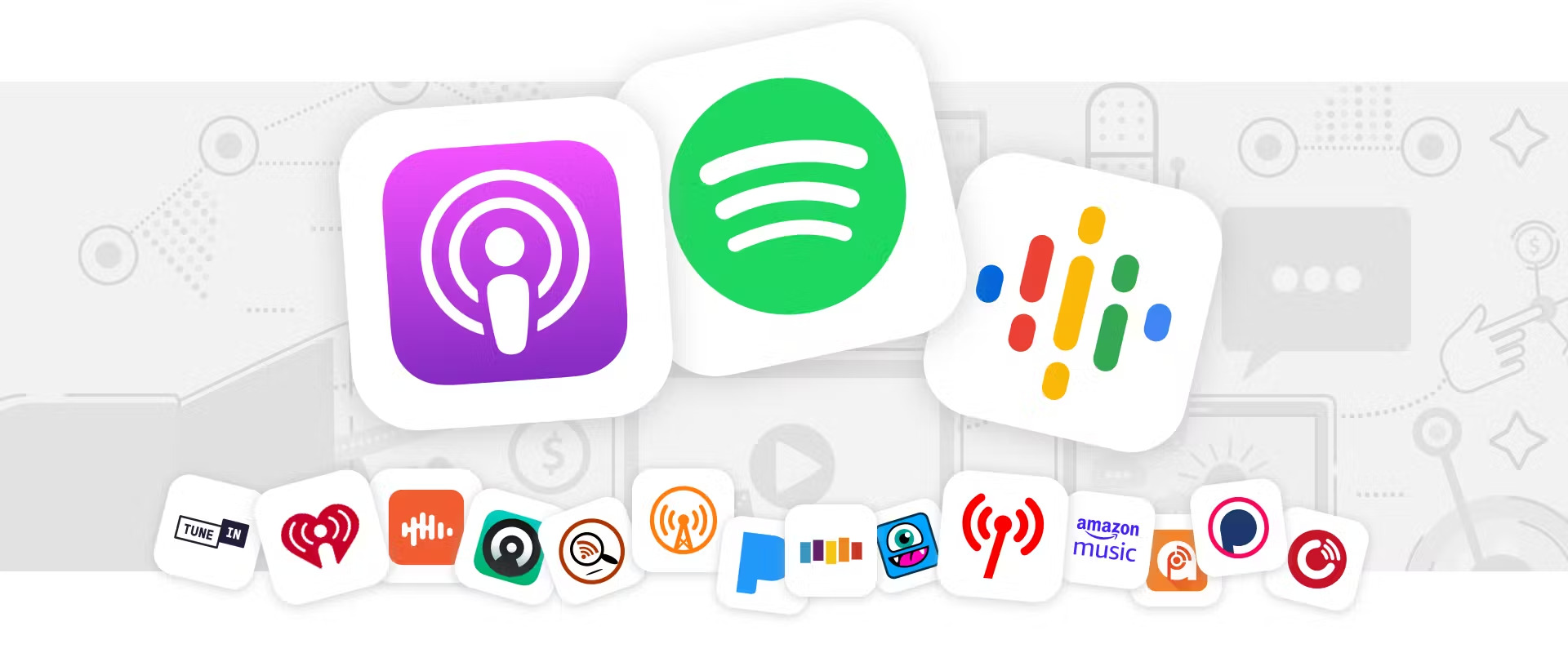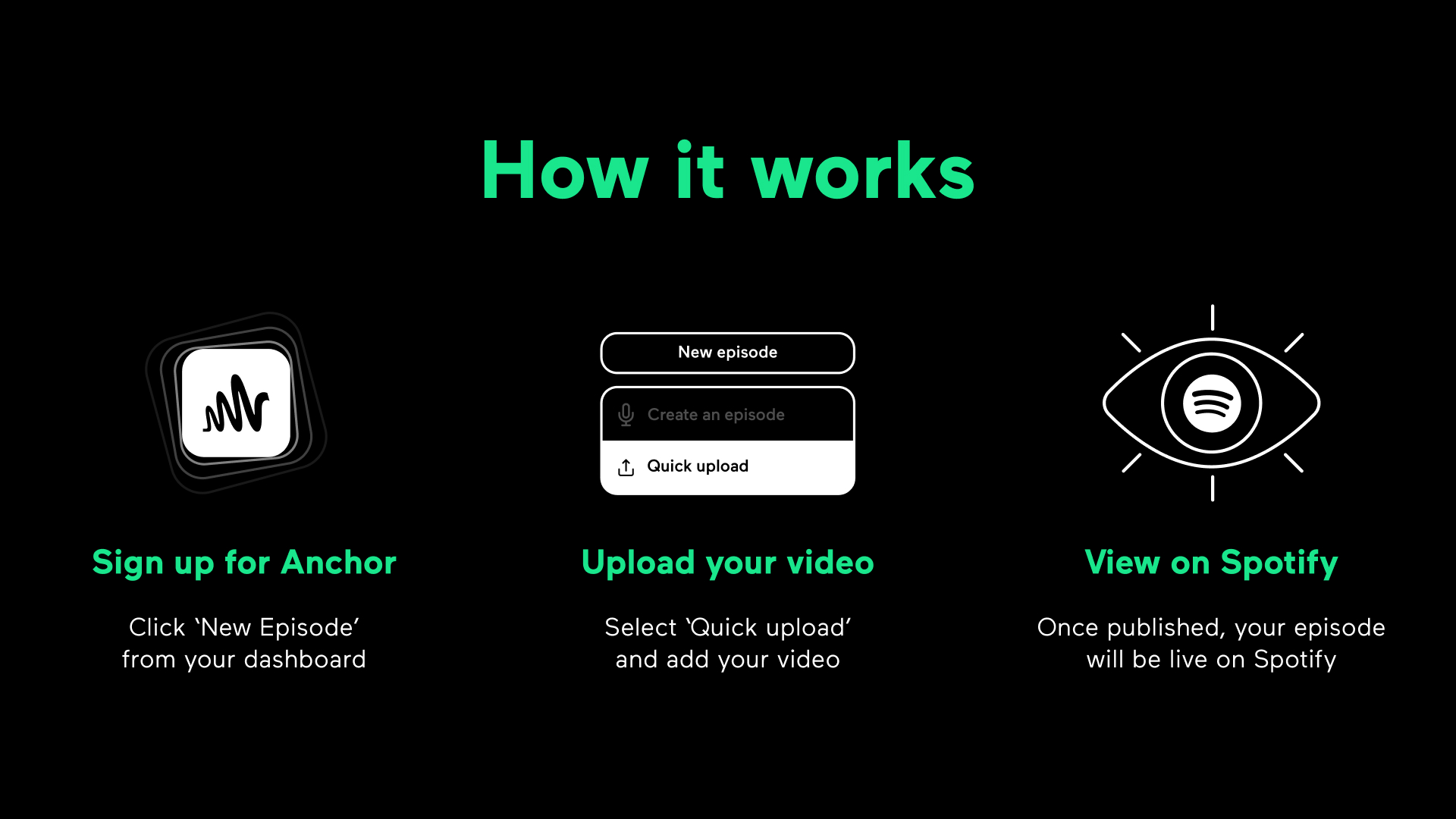Introduction
Welcome to the world of podcasting, where anyone can become a storyteller, an expert, or a performer, reaching millions of listeners around the globe. Whether you’re a seasoned podcaster or just starting out, finding the right platform to upload and host your podcast is essential for reaching your audience effectively.
In this article, we’ll explore various options for uploading your podcast, ranging from free hosting platforms to paid hosting services. We’ll also discuss popular streaming platforms, social media platforms for podcasts, podcast directories, and even self-hosted options for those who prefer having complete control over their podcasting journey.
Before we dive into the different platforms and options available, it’s important to understand the advantages and disadvantages of each. Free hosting platforms may be tempting, especially for beginners, but they often come with limitations in terms of storage, bandwidth, and customization options. Paid hosting services, on the other hand, offer more flexibility and advanced features, but they come with a price tag.
If you’re looking to upload your podcast quickly and easily, streaming platforms like Spotify, Apple Podcasts, and Google Podcasts are great options. These platforms have large user bases, making it easier for your podcast to reach a wider audience. Additionally, they often provide analytics tools to help you track your podcast’s performance and listener engagement.
Another avenue to explore is using social media platforms to upload and promote your podcast. With the rise of platforms such as YouTube, Facebook, and Instagram, you can leverage the existing user base and social sharing features to grow your podcast’s listenership.
Podcast directories are also worth considering, as they act as centralized platforms where users can discover podcasts based on various categories and genres. Submitting your podcast to directories like Stitcher, TuneIn, and iHeartRadio can increase its visibility and potentially attract new listeners.
Lastly, for those who want complete control over their podcasting experience, self-hosting is an option. This involves hosting your podcast on your own website or using a dedicated media hosting service. While self-hosting gives you full ownership and customization options, it requires technical know-how and may involve additional costs for hosting and bandwidth.
Now that we have an overview of the various options available, let’s dive deeper into each of them to help you decide where to upload your podcast and maximize its reach and impact.
Free Podcast Hosting Platforms
If you’re just starting out or on a tight budget, free podcast hosting platforms can be a great option to host and distribute your podcast without breaking the bank. These platforms provide a range of features and functionalities to help you get your podcast off the ground.
One popular free podcast hosting platform is Anchor. Anchor is known for its simplicity and user-friendly interface, making it easy for beginners to upload and distribute their podcasts. It offers unlimited storage and bandwidth, and even allows you to monetize your podcast through sponsorships and listener donations.
Another option worth considering is Podbean. While it offers both free and paid hosting plans, its free plan provides a decent set of features. With Podbean, you can upload and publish unlimited episodes, customize your podcast’s website, and even integrate monetization options such as ads and premium content.
Spreaker is another free hosting platform that offers a range of tools to enhance your podcasting experience. It provides comprehensive analytics, live broadcasting capabilities, and the ability to cross-promote your podcast on various social media platforms.
While free hosting platforms offer great benefits, it’s important to note that they do have limitations. You may encounter storage restrictions, limited customization options, and potentially lower audio quality compared to paid hosting services. Additionally, some platforms may include ads in your podcast as a way to monetize their services.
Overall, free podcast hosting platforms are a fantastic starting point for beginners or those on a limited budget. They allow you to get your podcast out there without the financial commitment. However, as your podcast grows and you require more features and flexibility, you may need to consider upgrading to a paid hosting service.
Paid Podcast Hosting Platforms
If you’re ready to invest in your podcasting journey and take your podcast to the next level, paid podcast hosting platforms offer a wide range of advanced features and benefits. While these platforms come with a price tag, they provide greater flexibility and customization options compared to their free counterparts.
One popular paid hosting platform is Libsyn. With Libsyn, you can upload and distribute your podcast to all major podcasting platforms, including Apple Podcasts, Spotify, and Google Podcasts. It offers unlimited storage and bandwidth, advanced analytics to track your podcast’s performance, and customizable podcast pages to showcase your brand.
Another notable paid hosting platform is Blubrry. Blubrry focuses on providing professional-grade hosting and distribution services. It offers seamless integration with WordPress websites, allowing you to easily embed your podcast episodes on your own website. Blubrry also provides detailed audience analytics and monetization options through dynamic ad insertion.
One of the pioneers in podcast hosting, Podbean, also offers paid hosting plans for those looking for more features. With Podbean, you can remove any limitations on storage and bandwidth, access advanced analytics and listener insights, and have more control over advertising and monetization opportunities for your podcast.
While paid hosting platforms offer an array of advanced features, it’s essential to consider your specific podcasting needs and budget before making a decision. Take into account factors such as storage space, bandwidth, analytics, monetization options, and customer support, to ensure that the platform aligns with your podcasting goals.
Moreover, paid hosting platforms often provide better audio quality and faster episode delivery compared to free hosting services. This can enhance the overall listening experience for your audience and give your podcast a more professional touch.
Ultimately, investing in a paid podcast hosting platform can open up opportunities for growth and success. It gives you access to a wider range of features, detailed analytics, and increased control over your podcast’s branding and monetization. Consider your long-term goals and prioritize the features that are most important to you when choosing a paid hosting platform.
Popular Streaming Platforms
Streaming platforms have transformed the way we consume and share content, including podcasts. Utilizing these platforms can significantly expand your podcast’s reach and attract a larger audience. Let’s explore some of the most popular streaming platforms for podcasts.
Spotify, known for its extensive music library, has become a major player in the podcasting industry. They’ve invested heavily in podcasting and offer a user-friendly interface for podcast creators and listeners alike. With Spotify, you can upload your podcast episodes, create playlists, and even apply for Spotify’s exclusive podcast features.
Another prominent streaming platform is Apple Podcasts, which comes pre-installed on Apple devices and enjoys a large user base. By submitting your podcast to Apple Podcasts, you can ensure that your podcast is accessible to millions of potential listeners. Apple Podcasts also offers features like analytics and the ability to monetize your podcast through Apple’s Podcast Subscriptions.
Google Podcasts is another platform that should not be overlooked. As part of Google’s ecosystem, it is easily accessible to Android users and integrates with Google Assistant. By submitting your podcast to Google Podcasts, you can reach a significant audience and potentially attract new listeners who are actively searching for podcast content.
While Spotify, Apple Podcasts, and Google Podcasts are three of the most popular streaming platforms, there are others worth considering as well. Platforms like Stitcher, TuneIn, and iHeartRadio have established themselves as go-to destinations for podcast enthusiasts. These platforms often offer featured podcast sections, curated playlists, and personalized recommendations to help listeners discover new shows.
It’s important to note that while streaming platforms can amplify your podcast’s exposure, they do not host the actual podcast files. Instead, they pull the episodes from your chosen hosting platform. Therefore, it’s crucial to ensure that your podcast is available on a hosting platform that integrates with these streaming platforms and automatically syndicates your episodes.
By leveraging the reach and user base of popular streaming platforms, you can significantly increase your podcast’s visibility and capture the attention of a wider audience. Be sure to submit your podcast to multiple streaming platforms to maximize its potential reach.
Social Media Platforms for Podcasts
Social media platforms have become powerful tools for promoting and growing podcasts. With their vast user bases and strong engagement, these platforms offer excellent opportunities to connect with your target audience and expand your podcast’s reach. Let’s explore some popular social media platforms for podcasts.
YouTube, known primarily for video content, can also be a valuable platform for podcasters. You can create video versions of your podcast episodes, complete with visuals, and upload them to your YouTube channel. This allows you to tap into YouTube’s massive audience and engage with viewers through comments, likes, and shares. Additionally, you can leverage YouTube’s search functionality to attract new listeners searching for relevant topics.
Facebook provides an excellent platform for creating a community around your podcast. You can create a dedicated Facebook page for your podcast and share episode updates, behind-the-scenes content, and engage with your listeners through comments and messages. Facebook also offers advertising options, allowing you to promote your podcast to targeted audiences.
Instagram is a visually-focused platform where you can share compelling images, short videos, and snippets of your podcast to pique interest. Utilize Instagram Stories, IGTV, and Reels to provide sneak peeks, share podcast updates, and interact with your followers. Instagram’s features such as hashtags, geotags, and tagging relevant accounts can help increase visibility and attract new listeners.
Twitter is a fast-paced platform that allows you to share bite-sized updates, quotes, and highlights from your podcast. You can engage in conversations with your audience, join relevant hashtags and communities, and promote new episodes regularly. Twitter’s retweet feature can help amplify your podcast’s reach when listeners share your content with their followers.
In addition to these platforms, other social media platforms such as LinkedIn, TikTok, and Snapchat can also be used creatively to promote your podcast. Identify where your target audience spends their time and tailor your content accordingly to maximize engagement and visibility.
When using social media platforms, it’s important to be consistent with your posting schedule and engage with your audience. Encourage listeners to share your podcast episodes and interact with your content. Building a strong social media presence will not only drive more listeners to your podcast but also create a loyal community that supports and advocates for your show.
Remember, social media is not only about self-promotion. It’s also about building relationships, sharing valuable content, and engaging with your audience. Find the right balance between promoting your podcast and providing value to your followers to create a compelling social media presence for your podcast.
Podcast Directories
Podcast directories are platforms specifically designed to help listeners discover podcasts based on different categories and genres. Submitting your podcast to these directories can increase its visibility and attract new listeners who are actively searching for content in your niche. Let’s explore some popular podcast directories you should consider.
Stitcher is one of the leading podcast directories with a vast catalog of podcasts across various topics. It offers features like personalized recommendations, curated playlists, and the ability to create your own podcast playlists. Stitcher also provides listening statistics and insights to help you understand your audience better.
TuneIn is another popular directory with a focus on offering a wide range of audio content, including podcasts, live radio, and music. By submitting your podcast to TuneIn, you can reach a substantial audience and tap into their robust recommendation algorithms. TuneIn also allows you to monetize your podcast through their ad network.
iHeartRadio, known for its radio streaming services, has also become a significant player in the podcasting industry. By submitting your podcast to iHeartRadio, you can expand your reach to their extensive user base and benefit from their promotional efforts. iHeartRadio offers various genres and categories to help listeners discover new podcasts.
Podchaser is a comprehensive podcast directory that allows listeners to find, engage with, and rate podcasts. It offers a community-driven approach by allowing listeners to create and share podcast playlists and contribute to episode-level discussions. Submitting your podcast to Podchaser can help you connect directly with your audience and build a loyal fanbase.
In addition to these directories, there are many others worth considering, such as Deezer, RadioPublic, and Overcast. Each directory has its unique features and benefits, so it’s important to research and choose the ones that align with your podcast’s niche and target audience.
When submitting your podcast to directories, ensure that you have a professional podcast cover art, a compelling description, and correctly categorize your podcast to increase its discoverability. Regularly update your podcast’s information and engage with listeners who discover your show through these directories.
Remember that while podcast directories can be instrumental in reaching new listeners, they should not be relied on as the sole source of promotion. Implement a holistic marketing strategy that combines directory submissions with social media promotion, collaborations, guest appearances, and other avenues to maximize your podcast’s exposure.
By leveraging podcast directories, you can increase your podcast’s visibility, attract new listeners, and connect with a community of podcast enthusiasts who are actively seeking new shows to listen to.
Self-Hosted Options
For podcasters who value complete control and ownership over their podcasting journey, self-hosted options offer the flexibility and customization they desire. Self-hosting involves hosting your podcast on your own website or using a dedicated media hosting service. Let’s explore the self-hosted options available to podcasters.
If you have a website, you can choose to host your podcast on your own server. This gives you complete control over your podcast’s branding, design, and functionality. You can create a dedicated podcast section on your website and upload your podcast episodes directly. However, self-hosting requires technical knowledge and expertise in managing servers, software, and ensuring sufficient storage and bandwidth.
If managing your own server seems daunting, you can opt for dedicated media hosting services. These services specialize in hosting and delivering media files, including podcast episodes. They provide storage, bandwidth, analytics, and streaming capabilities, taking the technical burden off your shoulders.
One popular self-hosted option is Castos. Castos offers a seamless WordPress integration, making it easy to manage your podcast directly from your WordPress website. It provides unlimited storage, advanced analytics, and the ability to publish your podcast on major platforms like Apple Podcasts and Spotify.
Another well-known self-hosting service is Podserve. Podserve focuses on privacy and data ownership, offering a self-hosting solution with a strong emphasis on security. It provides detailed analytics, a customizable podcast player, and the ability to monetize your podcast through various methods like ads and membership subscriptions.
When choosing a self-hosted option, consider factors such as your technical proficiency, budget, storage and bandwidth requirements, and the level of control you desire. Self-hosting can give you complete ownership and customization options, but it also comes with the responsibility of managing and maintaining your hosting infrastructure.
It’s important to note that while self-hosting provides control, it may lack the discoverability and reach that comes with hosting your podcast on platforms like Spotify or Apple Podcasts. However, you can still manually submit your podcast to directories and promote it through your own marketing efforts to attract listeners.
Self-hosting options are ideal for podcasters who already have an established website or those who want to have complete control over their podcast’s presence and want to integrate it closely with their brand. Keep in mind the technical aspects and ensure that you have the necessary resources to manage and maintain your self-hosted podcast.
By self-hosting, you can create a unique podcasting experience that aligns with your brand identity and goals, giving you the freedom to shape your podcast exactly as you envision it.
Conclusion
Choosing the right platform to upload and host your podcast is crucial for its success and growth. In this article, we explored various options available to podcasters, ranging from free hosting platforms to paid hosting services, popular streaming platforms, social media platforms, podcast directories, and self-hosted options.
Free podcast hosting platforms like Anchor, Podbean, and Spreaker offer a great starting point for beginners or those on a tight budget. They provide essential features and simplicity, allowing you to upload and distribute your podcast easily.
Paid podcast hosting platforms such as Libsyn, Blubrry, and Podbean offer advanced features, customization options, and better audio quality. They are suitable for those who want more control and flexibility and are ready to invest in their podcasting journey.
Popular streaming platforms like Spotify, Apple Podcasts, and Google Podcasts have a massive user base and can significantly expand your podcast’s reach. By submitting your podcast to these platforms, you can tap into their existing audiences and access valuable analytics.
Social media platforms like YouTube, Facebook, Instagram, and Twitter provide excellent opportunities to promote your podcast, engage with your audience, and build a community. Each platform has its unique features and audience, so it’s important to tailor your content accordingly.
Podcast directories like Stitcher, TuneIn, and iHeartRadio help listeners discover new podcasts based on different categories and genres. Submitting your podcast to these directories can increase its visibility and attract new listeners who are actively searching for content in your niche.
For those who value complete control and ownership, self-hosting options like hosting on your own server or using dedicated media hosting services offer the flexibility and customization desired. Self-hosting requires technical knowledge but allows you to have complete control over your podcast’s branding and functionality.
Ultimately, the best platform for uploading and hosting your podcast depends on your specific needs, budget, technical proficiency, and long-term goals. Consider factors such as storage space, bandwidth, analytics, discoverability, and customization options when making your decision.
By carefully evaluating and selecting the right platform, you can maximize your podcast’s reach, enhance its visibility, and cultivate a loyal audience of dedicated listeners. So, choose the platform that aligns with your podcasting goals, create compelling content, and enjoy the journey of podcasting success.

























